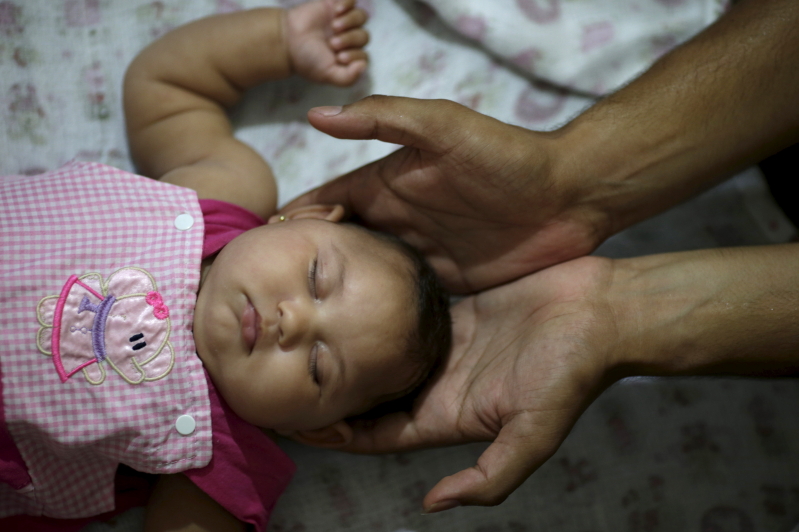
Brazil's top health official said on Monday that the Zika virus outbreak is proving to be worse than believed because most cases show no symptoms, but improved testing should allow the country to get a better grip on the burgeoning public health crisis.
Health Minister Marcelo Castro told Reuters that Brazil will start mandatory reporting of cases by local governments next week when most states will have labs equipped to test for Zika, the mosquito-borne virus that has quickly spread through Latin America. The virus has no vaccine or cure at present.
On Monday, the World Health Organization declared the Zika outbreak to be a global emergency, a decision that should help fast-track international action and research priorities.
In Brazil, believed to be the country hit hardest by Zika, the outbreak has sparked fear especially among pregnant women after local experts linked the virus to thousands of cases of microcephaly, or abnormally small heads and underdeveloped brains, in newborns.
"Eighty percent of the people infected by Zika do not develop significant symptoms. A large number of people have the virus with no symptoms, so the situation is more serious that we can imagine," Castro said in an interview.
"Our big hope is finding a vaccine," he added.
The Zika emergency comes at a particularly bad time for President Dilma Rousseff's unpopular government, adding a new burden to a public health system hit by budget cuts in the midst of a severe recession. It has also cast a shadow on Brazil's hosting of the Olympic Games in Rio de Janeiro in August.
The Brazilian government suspects the virus was brought to Brazil during the 2014 soccer World Cup by a visitor from Africa or Oceania where Zika is endemic. An estimated 1.5 million Brazilians have caught Zika, a virus first detected in Africa in the 1947 and unknown in the Americas until it appeared in May in the poverty-stricken northeastern region of Brazil.
The Pan-American health Organization said the virus has since spread to 24 countries and territories in the hemisphere.
WORKING WITH U.S. ON VACCINE
Castro, a psychiatrist from Rio, said the virus cannot be transmitted from person to person, only by mosquito, addressing fears that it could be spread through saliva, semen or urine.
By next week, labs in all but three of Brazil's states will be able to test whether a person has hadZika or not, he said.
And by next month, the labs will have a test that can detect all three viruses borne by the Aedes aegypti mosquito - dengue, chikungunya and Zika. The test, however, will only be effective during the initial infection period of five days.
Castro said Brazilian researchers are convinced that Zika is the cause of the 3,700 confirmed and suspected cases in Brazil of microcephaly in newborns. Ninety percent of children born with the condition will have retarded mental and physical development, experts say.
"The microcephaly cases are increasing by the week and we do not have an estimate of how many there will be. The situation is serious and worrying," Castro said.
Brazilian biomedical research centers are joining forces with U.S. counterparts to try to find aZika vaccine in record time, Castro said. A partnership between the U.S. National Institutes of Health and Brazil's Butantan Institute will seek to develop a vaccine by adding a gene to an existing one for dengue, he said.
Until there is a breakthrough on a vaccine, Brazil's only option is to try to eradicate the mosquito that spreads the virus, Castro said, with the government mobilizing all its possible resources and people, including tens of thousands of soldiers, to go door-to-door seeking places where the insect breeds.
Rousseff signed a temporary decree on Monday that makes it obligatory for residents to allow health workers to inspect their homes and properties for still water deposits where the Aedes aegypti mosquito lays its eggs.
Asked if Brazil would ease its restrictions on abortion to allow women with Zika to terminate pregnancies, Castro said it would be up to Congress to make that change. The government, he said, is sticking with the current law that makes abortion in the world's largest Roman Catholic country illegal except in cases of rape and risk to the mother's life.
Brazil will follow the U.S. decision last week to prohibit blood donations from people who have been infected with Zika, Castro said.
The U.S. Food and Drug Administration, however, has said it is planning to require people who have traveled to an affected country to defer giving blood, but details on how that might work are still being determined.






